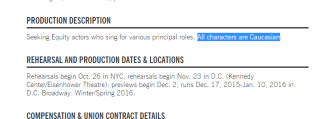Bob Dylan’s Nobel laurels leave me vaguely discomfited. Maybe a blog exploring these feelings will help us evolve our view of what we do, just as those Swedish solons have evolved their definition of Literature.
There’s an expectation in the air. I’m supposed to be elated, or elevated in some way, by the idea that a songwriter’s oeuvre is here considered Literature. It’s not big news when the Prize goes to a novelist. Steinbeck, Faulkner, Hemingway, Morrison – to name some Americans – easily get us to nod and say, yes: they deserve it. Poets like Yeats? Sure, that’s Literature; nobody would deny it. And I didn’t cry fie! over Fo. Like O’Neill before him and Pinter later, it’s not a radical idea to honor creators of Dramatic Literature.
But Dylan? Without casting aspersions, I think we can all acknowledge that what Dylan does is significantly different than what all the other Laureates did. One pictures him – and for all I know this could be a false vision – strumming a guitar, humming a simple tune, deciding what he wants to say. In my imagination, he doesn’t even write lyrics on paper. Like the bards prior to papyrus, he could sing his song so often, words get committed to memory, not to the page.
In this scenario, Literature is not a thing that’s written down and read. And the word “Bard” connotes a poet who is often appreciated separately from being published. Homer was a Bard; Shakespeare’s the Bard. Now that the printing press exists, we’ve come to think of Literature as a thing widely appreciated by readers. And, all of a-sudden this month, it’s something else. Sure, you can find Bob Dylan lyrics in a book, but his fans are listeners.
Of course, if you’re listening, there’s no separating lyrics from music. And certainly the Nobel folk have heard the tunes. Doesn’t that give a songwriter an unfair advantage? On my bookshelf are all those huge Robert Kimball volumes, The Complete Lyrics of Irving Berlin, of Oscar Hammerstein, etc. I treasure them – hell, I study them. But always keep in mind that these are words meant to be heard with tunes. So, if we read
Lay, lady, lay-
Lay across my big brass bed
the lines have limited power; when sung, they’re far more potent.
Here non-fans of Bob Dylan might interject that some of his melodies are too dull to help propel a lyric to eloquence. Like a Rolling Stone starts as a quick chant on one note – little help there.
Songwriting is unique in that way. Music and lyrics work together to get an emotion across. So it feels odd to consider Dylan’s lyrics independent of his music. And what about that voice? Bob Dylan has often been criticized for muddy articulation or an unpleasant – even grating – sound. Surely the Nobel folk aren’t rewarding that. But we listeners usually take Dylan’s words, music and voice as one inextricably interconnected bundle.
Rather than unraveling that ball of interconnection let’s talk about one of my favorite authors, Newark’s own wunderkind, Philip Roth. The man’s written so many of my most-loved novels – they’re often very funny and sometimes political – that each year I hope the Nobel Laurels will be his. But ’twas not to be, because while he turns out book after book with stunning prolificacy, some folksinger swipes his prize.
Of course, nobody really thinks that way. Except a character in a musical: Dr. Abner Sedgewick in It’s a Bird, It’s a Plane, It’s Superman! is a mad scientist and by “mad,” I mean angry. And what riles him is that he never wins a Nobel. This leads him to such evil actions, it takes Superman to stop him.
Well, I managed to circle back to musicals. (Were you worried I wouldn’t?) If you’re in the mood, you could hear the words of another Nobel Laureate on Broadway, snarled and hissed at you (by a cast led by my Area 51 ingénue, Mamie Parris). This, if you haven’t guessed yet, is Cats, which takes doggerel by T.S. Eliot and slaps on some eclectic melodies by Andrew Lloyd Webber. Which can be cute for ten minutes or so. I mean, I’ll admit it: There are times I feel like watching a cat video. I see the cuteness. But I can’t understand the felinophiles who make an evening of it. For well over two hours. For well over a hundred dollars.
Poor Tom (I’m talking about Eliot here). He didn’t mean for these silly rhymes to be heard in a theatre. And not sung to what used to be thought of as rock. When he wanted his words heard in the theatre, he wrote plays. Like you do.
But that ugly fate of a Laureate’s output not quite working in a Broadway musical has already beset Bob Dylan. A show created from his songs, The Times They Are A-Changing, flopped ten years ago. The principal creative force behind it, Twyla Tharp, had done something similar a few seasons earlier, Movin’ Out, based on the songs of Billy Joel, and that ran for many years. I’d venture a guess that Billy Joel’s songs work better in a theatrical context because they tend to tell stories, sometimes about interesting characters, using direct and straightforward language.
But Dylan’s not that sort of songwriter. He’s willing to be a bit cryptic, or opaque – qualities that, I hasten to remind you, stop a theatre song dead in its tracks. Show-goers insist on immediate appreciation. But, as many a poem-reader knows, there’s much pleasure to be derived from meanings that slowly unravel. Especially – it must be said – if you’re high, man. Which brings me back to the decision-making in Scandinavia: What were they smoking?



 Posted by Noel Katz
Posted by Noel Katz 










